Pan-Pan Jiang
The Interspeech 2025 Speech Accessibility Project Challenge
Jul 29, 2025Abstract:While the last decade has witnessed significant advancements in Automatic Speech Recognition (ASR) systems, performance of these systems for individuals with speech disabilities remains inadequate, partly due to limited public training data. To bridge this gap, the 2025 Interspeech Speech Accessibility Project (SAP) Challenge was launched, utilizing over 400 hours of SAP data collected and transcribed from more than 500 individuals with diverse speech disabilities. Hosted on EvalAI and leveraging the remote evaluation pipeline, the SAP Challenge evaluates submissions based on Word Error Rate and Semantic Score. Consequently, 12 out of 22 valid teams outperformed the whisper-large-v2 baseline in terms of WER, while 17 teams surpassed the baseline on SemScore. Notably, the top team achieved the lowest WER of 8.11\%, and the highest SemScore of 88.44\% at the same time, setting new benchmarks for future ASR systems in recognizing impaired speech.
Learnings from curating a trustworthy, well-annotated, and useful dataset of disordered English speech
Sep 13, 2024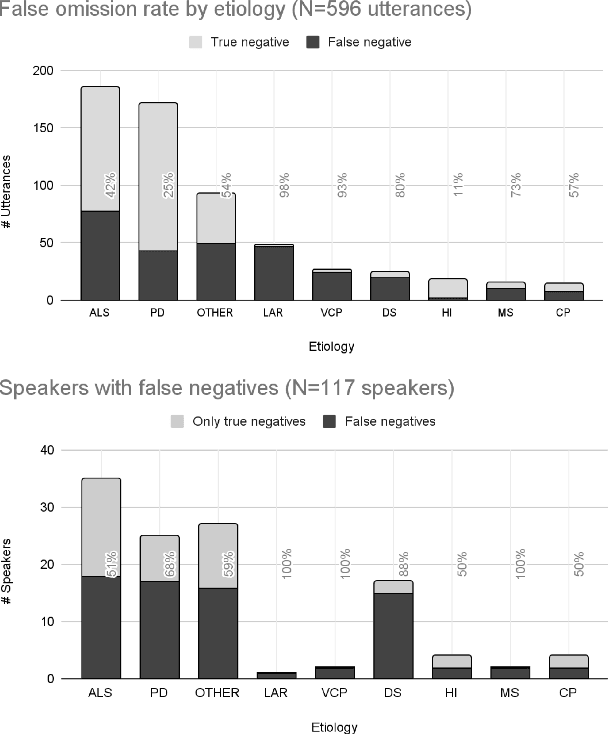
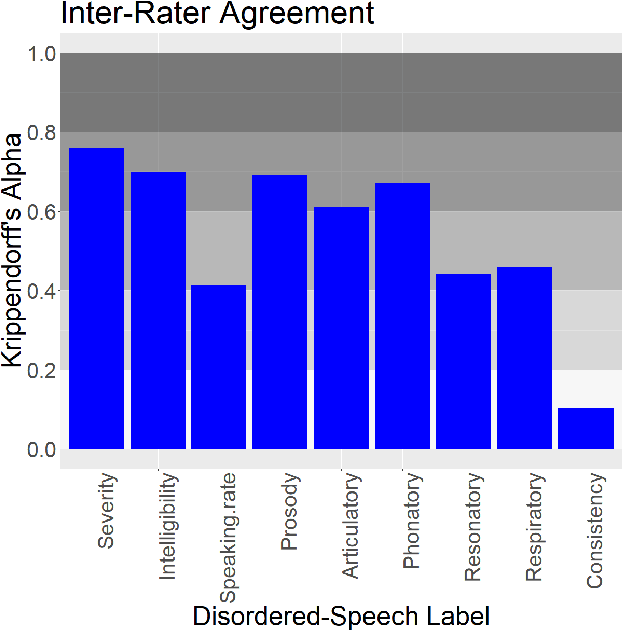
Abstract:Project Euphonia, a Google initiative, is dedicated to improving automatic speech recognition (ASR) of disordered speech. A central objective of the project is to create a large, high-quality, and diverse speech corpus. This report describes the project's latest advancements in data collection and annotation methodologies, such as expanding speaker diversity in the database, adding human-reviewed transcript corrections and audio quality tags to 350K (of the 1.2M total) audio recordings, and amassing a comprehensive set of metadata (including more than 40 speech characteristic labels) for over 75\% of the speakers in the database. We report on the impact of transcript corrections on our machine-learning (ML) research, inter-rater variability of assessments of disordered speech patterns, and our rationale for gathering speech metadata. We also consider the limitations of using automated off-the-shelf annotation methods for assessing disordered speech.
Speech Intelligibility Classifiers from 550k Disordered Speech Samples
Mar 15, 2023Abstract:We developed dysarthric speech intelligibility classifiers on 551,176 disordered speech samples contributed by a diverse set of 468 speakers, with a range of self-reported speaking disorders and rated for their overall intelligibility on a five-point scale. We trained three models following different deep learning approaches and evaluated them on ~94K utterances from 100 speakers. We further found the models to generalize well (without further training) on the TORGO database (100% accuracy), UASpeech (0.93 correlation), ALS-TDI PMP (0.81 AUC) datasets as well as on a dataset of realistic unprompted speech we gathered (106 dysarthric and 76 control speakers,~2300 samples).
An analysis of degenerating speech due to progressive dysarthria on ASR performance
Oct 31, 2022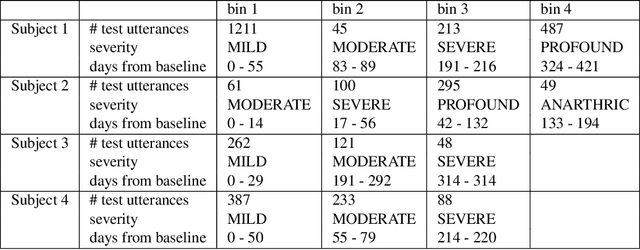
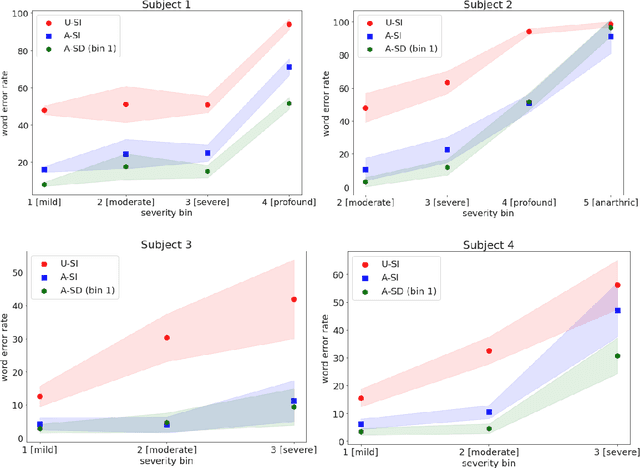

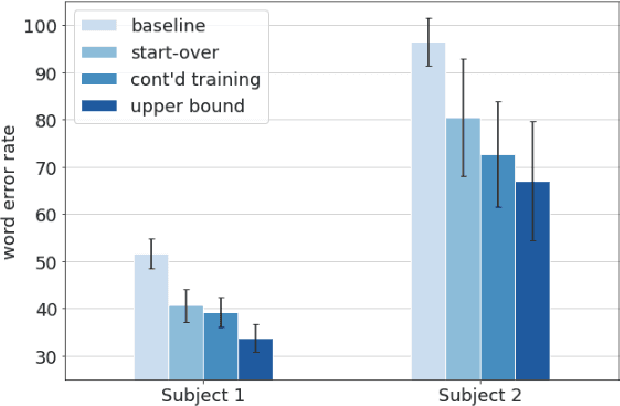
Abstract:Although personalized automatic speech recognition (ASR) models have recently been designed to recognize even severely impaired speech, model performance may degrade over time for persons with degenerating speech. The aims of this study were to (1) analyze the change of performance of ASR over time in individuals with degrading speech, and (2) explore mitigation strategies to optimize recognition throughout disease progression. Speech was recorded by four individuals with degrading speech due to amyotrophic lateral sclerosis (ALS). Word error rates (WER) across recording sessions were computed for three ASR models: Unadapted Speaker Independent (U-SI), Adapted Speaker Independent (A-SI), and Adapted Speaker Dependent (A-SD or personalized). The performance of all three models degraded significantly over time as speech became more impaired, but the performance of the A-SD model improved markedly when it was updated with recordings from the severe stages of speech progression. Recording additional utterances early in the disease before speech degraded significantly did not improve the performance of A-SD models. Overall, our findings emphasize the importance of continuous recording (and model retraining) when providing personalized models for individuals with progressive speech impairments.
 Add to Chrome
Add to Chrome Add to Firefox
Add to Firefox Add to Edge
Add to Edge